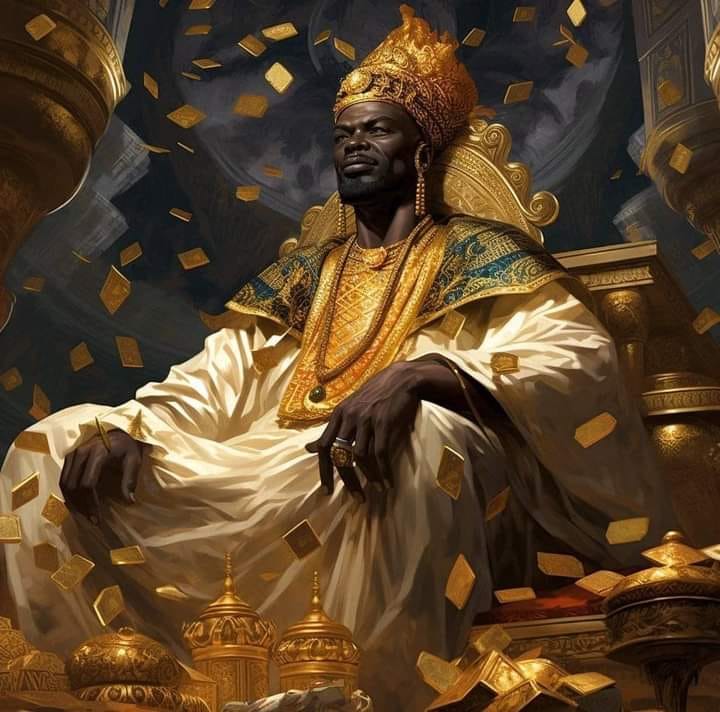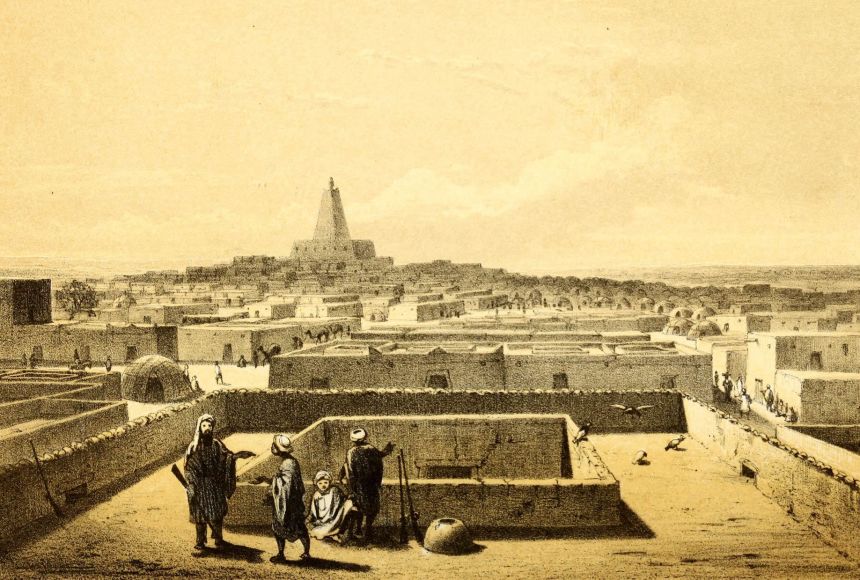Meet Mansa Musa, the ruler of the Mali Empire in the 14th century, often considered the richest person ever! His incredible wealth came from controlling trade routes for gold and salt, as well as having vast gold mines in Mali. Mansa Musa’s Mali Legacy transformed the Mali Kingdom into a distinguished hub of knowledge within the Islamic world. His ascent to power occurred in 1312 C.E., following the mysterious disappearance of the former king, Abu Bakr II. He had embarked on an ambitious expedition to explore the Atlantic Ocean with a substantial fleet of ships but never came back.
The ancient kingdom spanned parts of modern-day Mali, Senegal, the Gambia, Guinea, Niger, Nigeria, Chad, Mauritania, and Burkina Faso. Mansa Musa developed cities like Timbuktu and Gao into important cultural centers, bringing in architects from the Middle East and Africa to design new buildings for his cities.
Mansa Musa’s wise diplomacy and strong relationships with neighboring states boosted trade, making him even wealthier. His famous pilgrimage to Mecca in 1324, where he generously shared gold, showcased his immense riches. Historians estimate his fortune at around $400 billion in today’s money, surpassing even today’s wealthiest individuals.
Despite his unimaginable wealth, Mansa Musa was known for his generosity. He funded schools, libraries, and mosques, promoting education and religious growth in the Mali Empire. His wealth also put Mali on the world map, attracting traders and scholars and making the empire prestigious and influential.
Mansa Musa’s Pilgrimage Journey

When Mansa Musa embarked on a pilgrimage to Mecca in 1324 C.E., his passage through Egypt caused quite a sensation. Up until this event, the kingdom of Mali was relatively unknown beyond West Africa. Arab writers from that era reported that he traveled with a vast entourage, numbering in the tens of thousands, and a caravan of camels, each carrying 136 kilograms (300 pounds) of gold. During his time in Cairo, Mansa Musa met the Sultan of Egypt, and his generous distribution of gold led to a decrease in the overall value of gold in Egypt for the following 12 years. Tales of his immense wealth even reached Europe, with the Catalan Atlas, crafted in 1375 C.E. by Spanish cartographers, portraying West Africa dominated by Mansa Musa seated on a throne, holding a gold nugget in one hand and a golden staff in the other. This atlas solidified Mansa Musa’s global image as a figure of extraordinary wealth.
Upon his return from Mecca, Mansa Musa embarked on revitalizing cities within his kingdom. He constructed mosques and large public buildings in cities like Gao and, notably, Timbuktu. Thanks to Mansa Musa’s initiatives, Timbuktu evolved into a significant Islamic university center during the 14th century. Mansa Musa attracted architects and scholars from across the Islamic world, enhancing the reputation of the Mali kingdom. Around the same time, the kingdom of Mali reached its pinnacle, becoming a thriving and prosperous realm due to Mansa Musa’s expansion and effective administration.
The Death of Mansa Musa
Mansa Musa died in 1337, and his son’s assumed leadership. Although his adept governance left the empire prosperous at his passing, it eventually disintegrated. Despite the empire’s decline, Mansa Musa remains an African hero, and part of the world’s imagination. He remains a symbol of immense wealth long after his demise. However, his riches constitute just one aspect of his legacy. He is also celebrated for his commitment to the Islamic faith, encouragement of scholarship, and patronage of culture in Mali. Without a doubt, Mansa Musa’s Mali Legacy remains intact, with lessons for the current African leadership. ,
Bottomline
Mansa Musa’s fame and extraordinary wealth reached far and wide during his hajj to Mecca. This pilgrimage not only elevated his prominence but also put both him and Mali, the West African kingdom, on the global map. Timbuktu in Mali, celebrated for its schools and libraries, added to the kingdom’s recognition.



